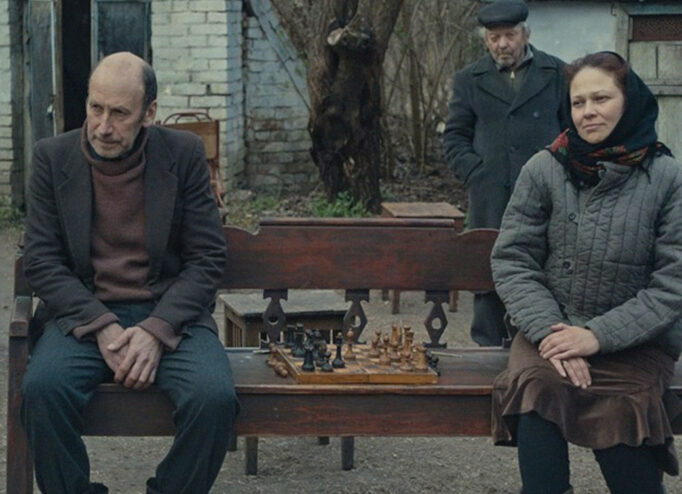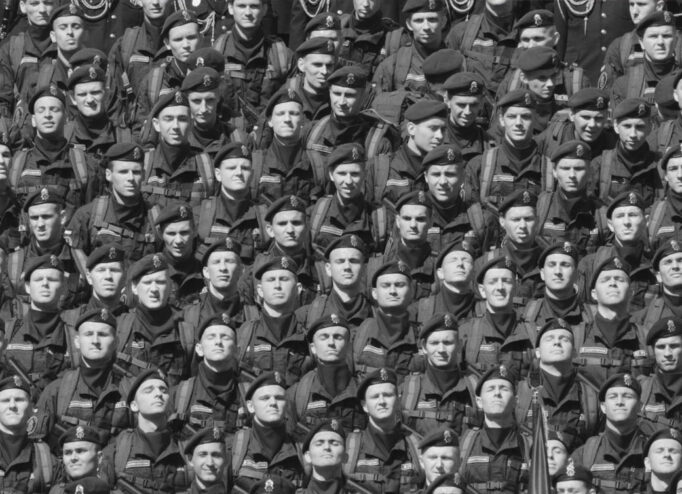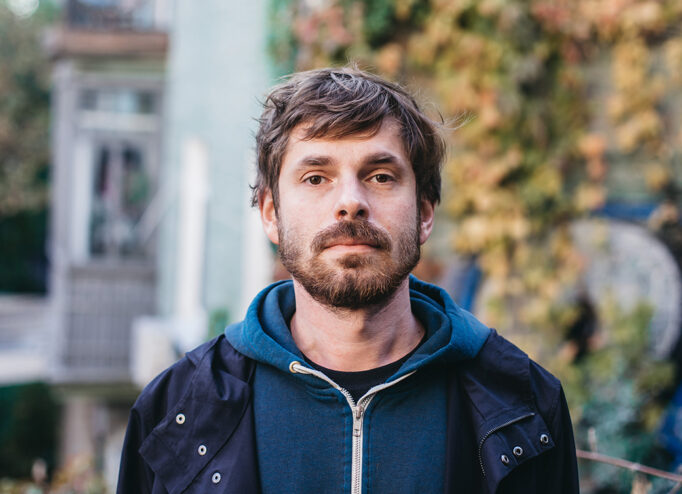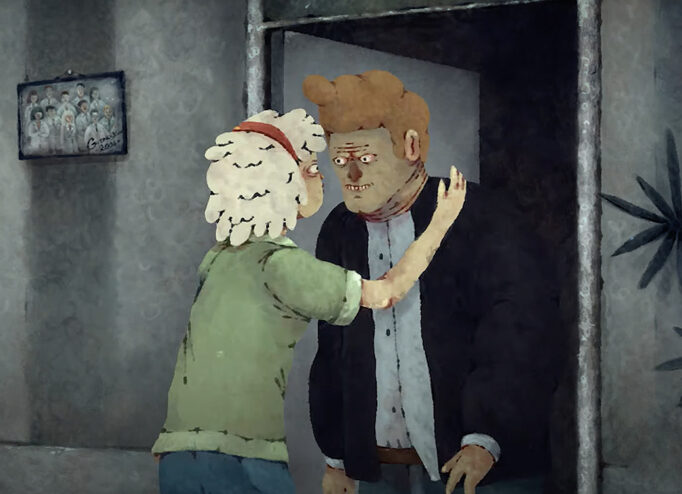Kornii Hrytsiuk’s ‘Eurodonbas’, a documentary film that debunks Soviet myths about Ukraine’s eastern region, has been released in Ukraine. In the late 19th century, European enterprises were built in Donetsk and Luhansk regions, and culture, architecture and business developed along with them. The first cinema appeared in Lysychansk (earlier than in Kyiv), and innovative methods were used in the coal industry. However, there was still segregation and blatant exploitation of cheap labor.
DTF Magazine recorded a podcast with Kornii about the influence of Belgians, Germans and Brits on the Donbas region, the negative side of industrialization and why everything disappeared. We collected the most important theses of this conversation.
Listen to an episode of the ‘Ukrainian Cultural Phenomena’ podcast about European Donbas on Soundcloud, Apple Podcasts and Spotify.
What is Donbas
My parents are the first people in my family who were born in Donbas. And all the others were born in the Vinnytsia, Kyiv and Zaporizhzhia regions. That is, they are from anywhere but not from Donbas. This region became a kind of a magnet due to its tolerance, due to the fact that there was diversity and many nationalities and religions there, and everyone could feel at home. As Mendeleev said about it, ‘russian America’. So it is really like a country of immigrants.
Donetsk and Luhansk regions are also similar to it in this respect. That is, if you accepted the rules of the game, society accepted you. On the one hand, this is good, but on the other hand, people there had no roots, no feeling that this was their land. No one lived there for generations.

Shot from ‘Eurodonbas’
How to understand Donbas
To understand a place, you have to leave it.
And this is probably what happened regarding me and Donbas, because, unfortunately or fortunately, I cannot consider myself a forced migrant from Donbas, because I came there of my own free will long before the war started, before Maidan, before all the events that took place in our country.
When I left there, I realized that I didn’t really know much about my native land, about the history of the region. And so when I was shooting the film ‘Train Kyiv — War’, I realized that I was not the only one. Many people from Donbas live with Soviet myths about their region.
This area seems to me to be the most mythologized in Ukraine. And when I was filming ‘Train Kyiv — War’, it was logical that I became more interested in the history of this area and began to research it. And, in fact, that’s how I decided to make the film ‘Eurodonbas’.
Who knew about the European past of eastern Ukraine
I knew from childhood that Donetsk was once called Yuzivka. There was a British man named John Hughes there. We even had a small monument to him on one of the central streets. They put it there in the 2000s. And there was a brewery. They made very good beer there. And there was no other mention of him.
The inhabitants of Donetsk knew that the city was founded by the British. But under what circumstances? When was that? What were they doing here? Were only the British here or was there someone else? Nobody knew much about it.

Shot from ‘Eurodonbas’
Neither schools nor universities were told about it. Of course, there were local people who knew about it, for example, Ihor Kozlovsky, who is one of the experts of the film ‘Eurodonbas’. But in general, people were not interested and perceived this information at the level of folklore.
About the negative side of the European past
The problem of the period of European integration and European industrialization of Donbas is that there are two extremes. One is that during the Soviet period this was not talked about at all, it was forgotten — they said that there were only bourgeois exploiters here. Soviet power came, and people began to live a normal life. This is one story.
And the second story is that, of course, now, during the post-colonial war, we’re trying to reclaim Donbas and generally defend our independence.
Of course, there is a great temptation to talk about that period only through rose-colored glasses and to say that Donbas was really powerful and that everything was fine there.
No, things weren’t good there, there was serious segregation. People lived on the streets. While Europeans lived under guard, Ukrainians lived as laborers. Ethnic russians also came to work in this territory.

Shot from ‘Eurodonbas’
It was exploitation. The capitalist world hasn’t changed much since then, and now we see it. Big companies move big factories to where there is cheap labor.
There were also cholera riots in this region, i.e. there was indeed a problematic epidemiological situation. It seems to me that in general this period should be considered comprehensively and it should be said that along with the riots there were advanced things, such as cinemas in Lysychansk and Mariupol, which appeared earlier than in Kyiv. This is a fact.
Okay, they were attached to the factories. This was built by the Belgians primarily for their own workers, so that after work they could spend time the way they were used to at home. But, of course, the Ukrainians also used it, because they had money and they were drawn to it.
Europeans also brought football here. Why has football always been loved in Donbas? The locals played football much better than people in Kyiv, Moscow or somewhere in St. Petersburg. If you played well, it made no difference whether you were Belgian, russian or Tatar in Ukraine.
When I created ‘Eurodonbas’, I wanted us to start researching that period in general, because I think it is poorly researched. And, unfortunately, in recent years we have no opportunity to research it in the occupied territories of Donetsk, Luhansk or Makiivka.
About the reasons for the end of European industrialization
This finally ended after the revolution in the russian empire, when the Bolsheviks were constantly seizing these territories. There was such a transitional period there, when Europeans thought that perhaps the situation would stabilize and it would be possible to further develop business there.


Shot from ‘Eurodonbas’
But then, when the Soviet regime came and they started nationalizing enterprises, repressions began. They realized that there would be no more business there. So they began to leave. The fates of many Europeans were tragic. Not everyone was able to leave this region. Many people were repressed, many people were shot, many people were thrown in jail.
Belgium is a country that did not recognize the Soviet Union as a state for quite a long time. It was because of the nationalization of their enterprises in Donbas that the Soviet Union started paying Belgium some money in the 1930s. Only then did Belgium recognize the Soviet Union.
The European period ended very abruptly in 1917–1918. And already in the 1920s there were almost no Europeans left. There were only Germans left, but their history is somewhat different. Again, because there was no great concentration of capital, but rather farming. So the Germans were there until the Second World War, and even then they were repressed as enemies of the people. They were there the longest.
About the preservation of cultural property
As one of the experts in our film said: ‘We are not going to Europe, we are going back there’. It is necessary to do this. But first we still need to win the war, and then we need to preserve the heritage, although the sights were not preserved even in times of peace. Even in my native Donetsk, the house where John Hughes lived was in such a state that it was a shame to show it to anyone. It’s the building of the city’s founder. It was like that until 2014, and no one paid any attention to it.






